Another issue, says Jacqueline Peters, BA 08, a professor in the Department of Classics, Modern Languages and Linguistics and a member of the President’s Task Force on Anti-Black Racism, is that many institutions do not collect and share disaggregated race-based data to understand and address systemic racism in the first place.
Peters says that many leaders ostensibly interested in anti-racism work have already determined what success should look and sound like, “and in their eyes, it doesn’t look or sound like us.” The hiring or promotion of one racialized person is often cited as evidence that institutional racism has been solved.
“When you can point to one person or two racialized people at your table, that isn’t inclusion — it’s a start,” she says. “But it’s more of a symbolic gesture, not a shift toward equity. The word for this is tokenism.
“True equity, diversity and inclusion is about providing what each person needs to achieve equality. It’s looking at new ways of being and thinking. It’s ensuring that you extend opportunities and listen to those who may not look or think like the people you have around your dinner table. Adding white women to a white male-dominated team is not true diversity.”
Vicky Boldo sees very little political will to address centuries of harm done to Indigenous people. Canada’s discriminatory Indian Act is still “alive and well,” she says. Boldo points out that the last residential school closed in 1996 — which she says was no different than a children’s internment camp — and she has seen round after round of national and provincial commissions and reports. These include the Royal Commission on Aboriginal Peoples, the Truth and Reconciliation Commission and, more recently, the Viens Commission Report and the National Inquiry’s Final Report into Missing and Murdered Indigenous Women and Girls. “Then, this past May, we had the Laurent Commission’s 550-page report, which documented Quebec’s negligence, inequity and systemic racism in youth protection,” Boldo says.
In November 2020, she was appointed to the permanent board of directors of the National Sixties Scoop Healing Foundation. In her experience, commissions and reports place the burden on those who are oppressed. They compel victims to provide testimonies and recount painful and traumatic life experiences instead of holding the people and systems responsible for the trauma to account.
“For those in power, the tendency, once these reports are released, is once again deficiency-focused. They centre their attention on the trauma rather than on the systemic violence that created it in the first place.” Racialized people are expected to bear this emotional labour alone, says Peters. People in power typically offload the healing onto others instead of doing the work themselves. “Not only are you traumatized, but the institutions that have traumatized you then task you with repairing the damage they have done. Often it’s as a way of occupying racialized people with these tasks in the hopes that they won’t publicly air their grievances and that the work will eventually wear them down or simply fail. “Then we can all move on and the status quo can quietly resume.” Moreover, says Peters, if anti-racism work is done well or a person is too vocal about systemic racism, that can put a target on the person’s back.
While Peters doesn’t expect to see more than incremental improvements in her lifetime, she says that her work is largely focused on benefitting future generations of students, staff and faculty. She hopes for widespread acceptance of the need for change, the institutional will to make it happen and recognition that change will benefit not just racialized people, but society as a whole.
‘Biases come from colonial underpinnings’
For Boldo, Lewis and Tremblay, it’s important that the university’s Indigenous Directions Action Plan be explored, studied, understood and applied across disciplines and departments at Concordia. Lewis maintains that it’s vital that individuals take the time to understand the history of the organizations and institutions they’re affiliated with. He encourages people to adopt a critical approach.
“Any human process presented as fact needs to be deconstructed. Who claims it as ‘fact’? What do they stand to gain? Who is most invested in upholding that ‘fact’ today? And, most importantly, who is disadvantaged by it?” Building strong relationships with the local Kanien’kehá:ka (Mohawk) Nation is also essential, affirm the members of the Indigenous Directions Action Plan. Indigenous ways of seeing and knowing need to be respected, upheld and taught.
For Willkie, Peters and their task force colleagues, which includes Annick Maugile Flavien, BSc 13, GrDip 15, MA 18, who co-chairs the task force, the work of addressing systemic anti-Black racism as it occurs across the university — whether in policies, teaching and learning practices, or in the experiences of faculty, staff and students — continues.
“Fundamentally it’s about exposing, wherever possible, any biases that exist in the way the university functions towards its Black communities of faculty, staff and students,” says Willkie, whose work on the task force includes helping to prepare a final report with recommendations by April 2022. “Those biases aren’t attributed to individuals in any way, but they come from colonial underpinnings and absolutely need to be questioned if the university is going to be able to function according to its aspirations of equality, diversity, equity, decolonization and social justice.”



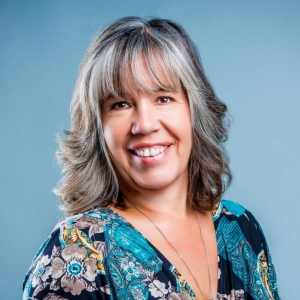 Vicky Boldo
Vicky Boldo
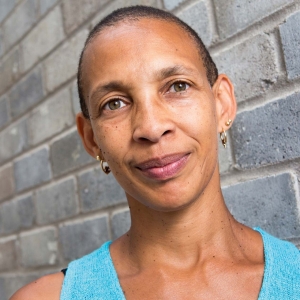 Angélique Willkie
Angélique Willkie
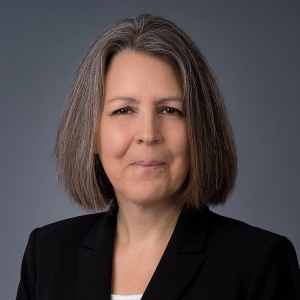 Manon Tremblay
Manon Tremblay
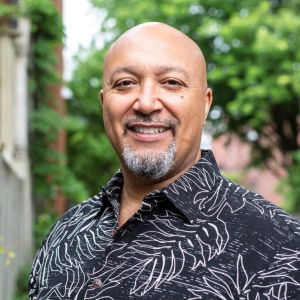 Jason Lewis
Jason Lewis
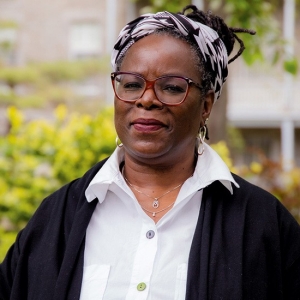 Jacqueline Peters, BA 08
Jacqueline Peters, BA 08